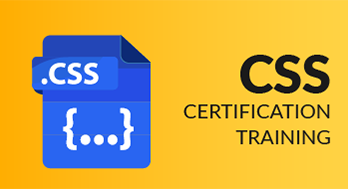In the ever-evolving landscape of project management and software development, the Agile framework has emerged as a game-changer. Agile principles, rooted in flexibility, collaboration, and continuous improvement, have reshaped the way teams work together to deliver high-quality products. Scrum, a popular Agile framework, serves as the cornerstone for many organizations in their journey towards agility. The Scrum Foundation Professional Certificate is a vital credential that validates one’s understanding of Scrum principles and practices, and in this article, we’ll explore its significance, the certification process, and its impact on your career.
The Evolution of Agile and Scrum
Before delving into the Scrum Foundation Professional Certificate, it’s essential to understand the broader context of Agile and Scrum.
Agile Methodology: Agile methodologies represent a set of values and principles for software development that prioritize customer collaboration, responding to change, and delivering a working product. It encourages iterative development, self-organizing teams, and frequent reassessment and adaptation.
Scrum Framework: Scrum is one of the most widely used Agile frameworks. It provides a structured approach to managing and delivering work in an Agile environment. Scrum divides work into time-boxed iterations called “sprints” and relies on roles like Scrum Master, Product Owner, and the Development Team.
The Scrum Foundation Professional Certificate
The Scrum Foundation Professional Certificate, often abbreviated as SFPC, is an entry-level certification designed for individuals who are new to Scrum or those who want to validate their basic understanding of Scrum concepts. It’s offered by various accredited training organizations and is recognized worldwide. Here’s what you need to know about this certification:
1. Credential Issuers
Several accredited organizations offer the Scrum Foundation Professional Certificate. These organizations are affiliated with Scrum.org, Scrum Alliance, or other reputable Scrum institutions. Some popular options include Scrum.org and the Scrum Alliance. Choosing an accredited organization ensures that your certification is recognized and respected in the industry.
2. Target Audience
The SFPC is designed for a diverse group of professionals, including project managers, product owners, developers, quality assurance professionals, and even executives. Essentially, anyone who is interested in understanding the basics of Scrum and Agile can benefit from this certification.
3. Entry-Level Certification
As an entry-level certification, the Scrum Foundation Professional Certificate doesn’t require any prior experience with Scrum. This makes it an excellent starting point for individuals who are new to Agile and Scrum practices.
4. Examination Format
The certification process typically involves a written exam that tests your knowledge of Scrum fundamentals. The format and structure of the exam can vary depending on the certifying body, but it commonly consists of multiple-choice questions and true/false statements. The pass mark may also vary, but it’s typically around 85%.
5. Study Material
To prepare for the SFPC exam, candidates are encouraged to study the Scrum Guide, a concise document that outlines the core principles of Scrum. This document is freely available and provides a solid foundation for the certification exam.
6. Certification Validity
The Scrum Foundation Professional Certificate usually does not expire. Once you earn it, it demonstrates your foundational knowledge of Scrum, and you can leverage it throughout your career.
The Benefits of the Scrum Foundation Professional Certificate
Now that we have a solid understanding of what the Scrum Foundation Professional Certificate entails, let’s explore the tangible benefits that this certification can offer:
1. Knowledge Validation
The SFPC serves as a testament to your understanding of Scrum principles and practices. It validates your foundational knowledge, which is invaluable when seeking opportunities in Agile organizations.
2. Career Opportunities
Agile methodologies are in high demand in various industries, and Scrum is a leading framework in the Agile landscape. Holding the SFPC can open doors to a wide range of job opportunities, from Scrum Master and Product Owner roles to Agile coaching and project management positions.
3. Professional Credibility
Certifications add credibility to your professional profile. They show potential employers and collaborators that you’re committed to staying current and knowledgeable in your field. This credibility can be a deciding factor in your career advancement.
4. Networking
The Agile community is vast and diverse. Attaining the SFPC often requires attending training sessions or workshops, allowing you to build a network of like-minded professionals who are passionate about Agile and Scrum. These connections can provide mentorship and collaboration opportunities in the future.
5. Personal Growth
Studying for the SFPC exam is a valuable learning experience. It deepens your understanding of Agile and Scrum, improving your problem-solving and critical thinking skills. This knowledge can be applied not only in your professional life but also in personal projects and endeavors.
6. Path to Advanced Certifications
The Scrum Foundation Professional Certificate can be a stepping stone to more advanced certifications. If you decide to pursue a career as a Scrum Master, Product Owner, or Agile Coach, you can build on your foundation with certifications like the Professional Scrum Master (PSM) or Professional Scrum Product Owner (PSPO).
How to Earn the Scrum Foundation Professional Certificate
Earning the Scrum Foundation Professional Certificate involves a few essential steps. Let’s break down the process:
1. Choose an Accredited Training Provider
Begin by selecting an accredited training provider that offers SFPC courses and exam preparation. Organizations like Scrum.org and Scrum Alliance are well-known for providing high-quality training and certification programs.
2. Attend Training
Participate in the Scrum Foundation Professional Certificate training, which typically involves a two-day workshop. During this training, you will learn about the Scrum framework, its roles, events, and artifacts. You’ll also gain practical insights into how Scrum is applied in real-world projects.
3. Self-Study
While attending a training workshop is highly recommended, it’s also essential to self-study. Make use of resources like the Scrum Guide, practice exams, and additional reading material to reinforce your understanding of Scrum concepts.
4. Pass the Exam
After completing the training, you’ll be eligible to take the Scrum Foundation Professional Certificate exam. This exam will assess your knowledge of Scrum principles and practices. Typically, you’ll need to score above a certain percentage to pass.
5. Receive Your Certificate
Upon successfully passing the exam, you’ll receive your Scrum Foundation Professional Certificate. This certificate serves as proof of your foundational Scrum knowledge.
Also Read: Scrum Master Professional Certificate SMPC
Conclusion
In conclusion, the Scrum Foundation Professional Certificate serves as an essential entry point for individuals seeking to embark on a journey into the world of Agile and Scrum. This certification not only validates your foundational knowledge of Scrum but also opens doors to a myriad of career opportunities. As Agile methodologies continue to gain prominence across various industries, having the SFPC on your resume demonstrates your commitment to staying at the forefront of project management and software development practices.
The benefits of earning the SFPC extend beyond just career advancement. It fosters personal growth by enhancing your problem-solving and critical thinking abilities. Moreover, it connects you with a thriving community of Agile enthusiasts, providing opportunities for networking, collaboration, and mentorship.
While the certification process might seem straightforward, it’s worth noting that continuous learning and practical experience are key to mastering Scrum. The Scrum Foundation Professional Certificate is just the beginning of your Agile journey, and it can serve as a stepping stone to more advanced certifications as you gain more experience and expertise.
In a world where adaptability and collaboration are paramount, the Scrum Foundation Professional Certificate is a valuable asset for anyone looking to thrive in the dynamic landscape of project management and software development. So, if you’re ready to embark on this exciting path, seize the opportunity to gain the SFPC and embrace the principles of Scrum as a foundation for your Agile future.




